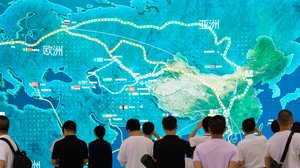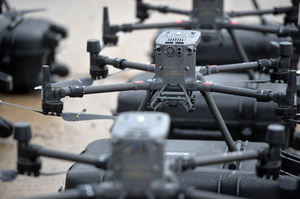Oliver Letwin: Hello, I’m Oliver Letwin. I’m the chair of the Project for Peaceful Competition. This is a project that involves gathering scholars and thinkers from around the world to look at the various ways in which competition between China and the West plays out and to look at ways in which we might be able — if we strive mightily — to find collaboration and cooperation. And for this third conference in our series, we partnered with Rohinton Medhora and the Centre for International Governance Innovation to look at ways in which digital technology and big data are playing out in the context of this strategic rivalry and, therefore, some degree of compromise or cooperation between the West and China in managing the very serious issues that arise from digital technology in our societies. And with that I turn over to you, Rohinton.
Rohinton Medhora: Oliver, thank you, and first, let me say thank you to you and your colleagues at King’s College London. Digital technology and big data hold certain almost inherent characteristics, which led us to believe that this topic is ideal for your framework of understanding contemporary geopolitics and geoeconomics. Anytime you have something where “winner takes all” and where massive amounts of state intervention are almost necessary for success. And let’s make no mistake, this is the case in China, with the firewall that it has built around its big firms. But also in the US, where the rise of big tech has not been a purely free market phenomenon. So, you have inherent state intervention, some degree of tension as a result and technologies which are highly intrusive. And so, economics, society, politics, social welfare more broadly, are at play. And so, there’s an inbuilt rivalry and you can see why digital and big data is central to both posing the challenges that you outlined and also holding some of the solutions. So, we had a rich discussion — the next step is to move this all into the public and policy domains.
Oliver Letwin: Thank you very much for that, Rohinton. I think it’s very clear from the enormously illuminating contributions that there is, as you say, a huge challenge, but at the same time there are some avenues worth exploring for establishing a degree of cooperation with an effect on the governance of the digital age.


